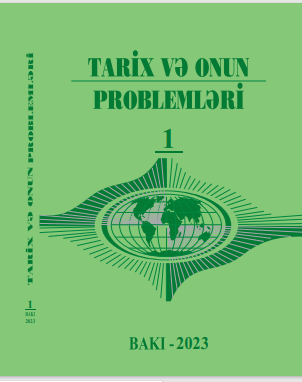LALA ALIYEVA
Associate Professor of History Faculty, Baku State University
https://orcid.org/0000-0002-4831-6915
ETHNO-RELIGIOUS IDENTITIES IN THE EARLY MEDIEVAL AZERBAIJAN:
ON THE BASIS OF THE PRIMARY SOURCES
DOI: https://doi.org/10.36719/2708-065X/109/10-13
This research paper examines the evolution of ethno-religious identities in early Medieval Azerbaijan. The primary objective of this investigation is to determine religion’s pivotal role in transforming ethnic identity across this geographical and political expanse.
The study begins by analyzing the ethno-religious composition of pre-Islamic Azerbaijan through Armenian and Georgian chronicles, Moses of Kalankatuyk’s “History of Alban,” and Sassanian inscriptions. These sources reveal a distinctly multi-ethnic and multi-linguistic society characterized by diverse religious practices, including various forms of idolatry, Christianity, and Zoroastrianism.
The Arab conquest and subsequent introduction of Islam fundamentally altered the religious landscape of the region, precipitating profound changes in collective identity. Sources ranging from early medieval Arab authors to Persian historical literature and European textual sources illuminate the gradual nature of this transformation process.
Furthermore, this research investigates the adaptation of religious practices within new ethno-cultural environments and identifies the defining characteristics of emergent ethno-religious identities - products of complex historical processes. In essence, the paper traces the dynamic interplay between religious transformation and ethnic identity through a comprehensive historical perspective.
Keywords: Early Medieval Azerbaijan, Turkic tribes, Islamisation, Ethnic identity, religious transformation.

